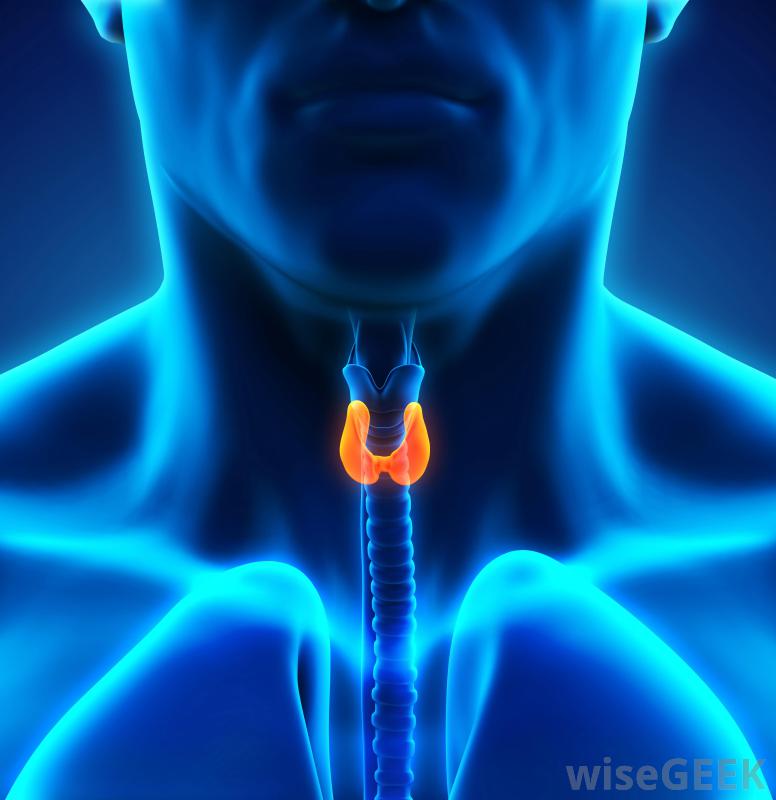Hormone Replacement Therapy, Physiology
THYROID, BASAL METABOLIC RATE & WEIGHT
WHAT IS THE RELATIONSHIP BETWEEN THYROID AND WEIGHT?
It has been appreciated for a very long time that there is a complex relationship between thyroid disease, body weight and metabolism. Thyroid hormone regulates metabolism in both animals and humans. Metabolism is determined by measuring the amount of oxygen used by the body over a specific amount of time. If the measurement is made at rest, it is known as the basal metabolic rate (BMR). Indeed, measurement of the BMR was one of the earliest tests used to assess a patient’s thyroid status. Patients whose thyroid glands were not working were found to have low BMRs, and those with overactive thyroid glands had high BMRs. Later studies linked these observations with measurements of thyroid hormone levels and showed that low thyroid hormone levels were associated with low BMRs and high thyroid hormone levels were associated with BMRs. Most physicians no longer use BMR due to the complexity in doing the test and because the BMR is subject to many other influences other than the thyroid state.
WHAT IS THE RELATIONSHIP BETWEEN BMR AND WEIGHT?
Differences in BMRs are associated with changes in energy balance. Energy balance reflects the difference between the amount of calories one eats and the amount of calories the body uses. If a high BMR is induced by the administration of drugs, such as amphetamines, animals often have a negative energy balance which leads to weight loss. Based on such studies many people have concluded that changes in thyroid hormone levels, which lead to changes in BMR, should also cause changes in energy balance and similar changes in body weight. However, BMRs are not the whole story relating weight and thyroid. For example, when metabolic rates are reduced in animals by various means (for example by decreasing the body temperature), these animals often do not show the expected excess weight gain. Thus, the relationship between metabolic rates, energy balance, and weight changes is very complex. There are many other hormones (besides thyroid hormone), proteins, and other chemicals that are very important for controlling energy expenditure, food intake, and body weight. Because all these substances interact on both the brain centers that regulate energy expenditure and tissues throughout the body that control energy expenditure and energy intake, we cannot predict the effect of altering only one of these factors (such as thyroid hormone) on body weight as a whole. As a consequence, at this time, we are unable to predict the effect of changing thyroid state on any individual’s body weight.
-
HYPERTHYROIDISM
WHAT IS THE RELATIONSHIP BETWEEN HYPERTHYROIDISM AND WEIGHT?
Since the BMR in patients with hyperthyroidism is elevated, many patients with an overactive thyroid do, indeed, experience some weight loss. Furthermore, the likelihood of weight loss occurring is related to the severity of the overactive thyroid. Thus, if the thyroid is extremely overactive, the individual’s BMR increases which leads to increased caloric requirements to maintain that weight. If the person does not increase the calories consumed to match the excess calories burned, then weight loss will ensue. As indicated earlier, the factors that control our appetite, metabolism, and activity are very complex and thyroid hormone is only one factor in this complex system. Nevertheless, on average the more severe the hyperthyroidism, the greater the weight loss observed. Weight loss is also observed in other conditions where thyroid hormones are elevated, such as in the toxic phase of thyroiditis and if one is on too high a dose of thyroid hormone pills. Since hyperthyroidism also increases appetite, some patients may not lose weight, and some may actually gain weight, depending on how much they increase their caloric intake.
WHY DO I GAIN WEIGHT WHEN HYPERTHYROIDISM IS TREATED?
Because the hyperthyroidism is an abnormal state, we can predict that any weight loss caused by the abnormal state would not be maintained when the abnormal state is reversed. This is indeed what we find. On the average, any weight lost during the hyperthyroid state is regained when the hyperthyroidism is treated. One consequence of this observation is that the use of thyroid hormone to treat obesity is not very useful. Once thyroid hormone treatment is stopped, any weight that is lost while on treatment will be regained after treatment is discontinued.
-
HYPOTHYROIDISM AND THYROID HORMONE
WHAT IS THE RELATIONSHIP BETWEEN HYPOTHYROIDISM AND WEIGHT GAIN?
Since the BMR in the patient with hypothyroidism is decreased, an underactive thyroid is generally associated with some weight gain. The weight gain is often greater in those individuals with more severe hypothyroidism. However, the decrease in BMR due to hypothyroidism is usually much less dramatic than the marked increase seen in hyperthyroidism, leading to more modest alterations in weight due to the underactive thyroid. The cause of the weight gain in hypothyroid individuals is also complex, and not always related to excess fat accumulation. Most of the extra weight gained in hypothyroid individuals is due to excess accumulation of salt and water. Massive weight gain is rarely associated with hypothyroidism. In general, 5-10 pounds of body weight may be attributable to the thyroid, depending on the severity of the hypothyroidism. Finally, if weight gain is the only symptom of hypothyroidism that is present, it is less likely that the weight gain is solely due to the thyroid.
HOW MUCH WEIGHT CAN I EXPECT TO LOSE ONCE THE HYPOTHYROIDISM IS TREATED?
Since much of the weight gain in hypothyroidism is accumulation in salt and water, when the hypothyroidism is treated one can expect a small (usually less than 10% of body weight) weight loss. As in the treatment with hyperthyroidism, treatment of the abnormal state of hypothyroidism with thyroid hormone should result in a return of body weight to what it was before the hypothyroidism developed. However, since hypothyroidism usually develops over a long period of time, it is fairly common to find that there is no significant weight loss after successful treatment of hypothyroidism. Again, if all of the other symptoms of hypothyroidism, with the exception of weight gain, are resolved with treatment with thyroid hormone, it is less likely that the weight gain is solely due to the thyroid. Once hypothyroidism has been treated and thyroid hormone levels have returned to the normal range of thyroid hormone, the ability to gain or lose weight is the same as in individuals who do not have thyroid problems.
CAN THYROID HORMONE BE USED TO HELP ME LOSE WEIGHT?
Thyroid hormones have been used as a weight loss tool in the past. Many studies have shown that excess thyroid hormone treatment can help produce more weight loss than can be achieved by dieting alone. However, once the excess thyroid hormone is stopped, the excess weight loss is usually regained. Furthermore, there may be significant negative consequences from the use of thyroid hormone to help with weight loss, such as the loss of muscle protein in addition to any loss of body fat. Pushing the thyroid hormone dose to cause thyroid hormone levels to be elevated is unlikely to significantly change weight and may result in other metabolic problems.

